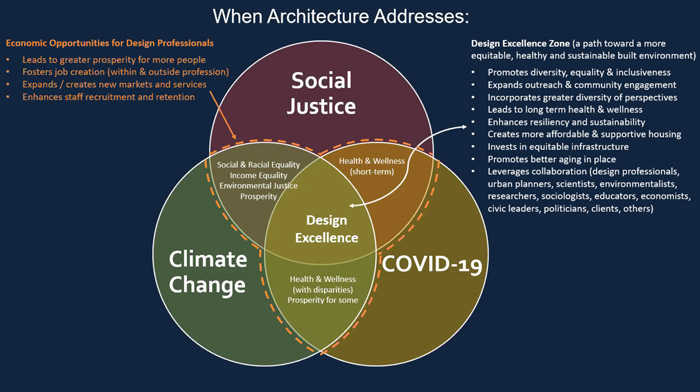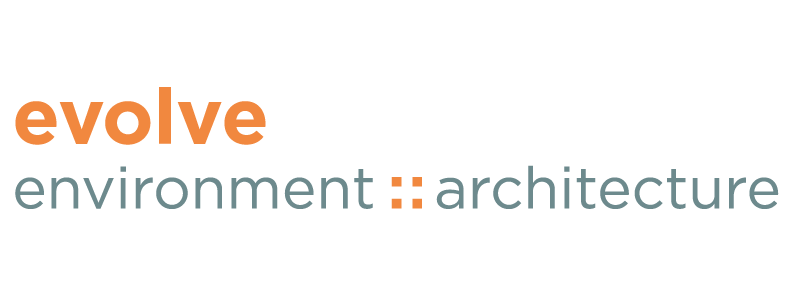Broadening the Role of the Architect
The American Institute of Architects recently hosted a national panel of experts to discuss the three large issues currently facing our society – Social Justice, Covid-19 and Climate Change. While these game-changing concepts each deserve their own areas of study, the notion of studying them together made for a robust discussion that was able to transcend each silo. The logical outcome calls for architects to frame problems in a larger and more inclusive process that identifies and holds accountable each of the larger issues into each project.
“This goes far beyond bricks and mortar. The ability to engage stakeholders that are not funding or directly using the project, but who will be impacted by it, requires a commitment to creating an equitable project at its inception.”
-Marc Mondor, AIA, LEED Fellow
And this is easier said than done. Engagement at project inception, if done properly, will yield goals that must then be inculcated.
“This requires the architect, as leader of the goal setting process, to think in systems. Organizational systems such as B-Corp or Just, and sustainability frameworks such as LEED or WELL, may be helpful tools in order to rally the project around a shared definition of success, but each project requires its own customized project statement,” continues Mondor. Solutions that address one issue, if done properly, can address the others. For instance, if a project is designed to address inclusion, the strategies may well also address health and carbon.


